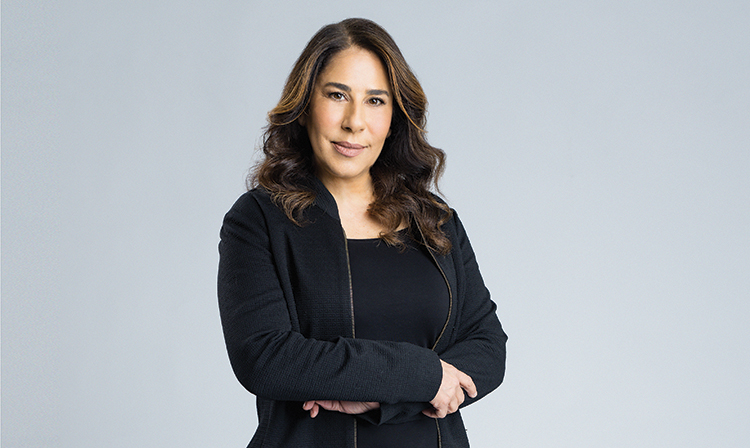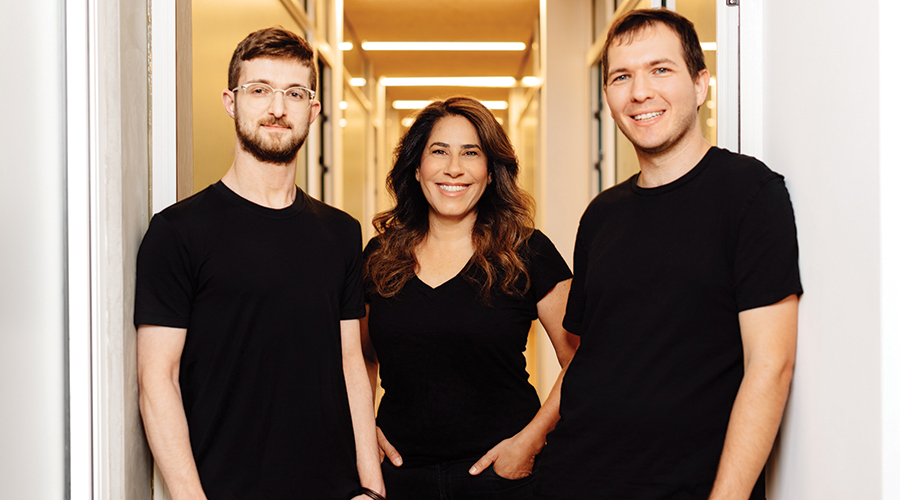A well-known saying has been circulating in the cybersecurity industry for years, and over the years has become an iron rule – “If you’ve found a security breach – it’s probably already too late.” This sentence has become doubly true and accurate in today’s cloud reality – when the era of digital transformation has sent huge amounts of information to the cloud, and in the process multiplied the cyber threats tenfold.
The response time, considering the increasing threats, has to be shortened to zero. Recent studies even show a direct and clear connection between organizations that have transferred their services to the cloud and the amount of attacks and threats directed against them – attacks that have become more effective, more frequent and faster than ever before.
Cloud security companies have grown meteorically in recent years. The hot field and the security solutions developed by companies like Dazz – a cybersecurity startup founded by security experts Merav Bahat, Tomer Schwartz and Yuval Ofir – have become a magnet for investments, amounting to billions of dollars a year.
Merav Bahat is the CEO and founder of Dazz, a company that focuses on the security of development stages in the cloud. Bahat founded the company only two years ago together with Tomer Schwartz, CTO, and Yuval Ofir, VP R&D. The three founders all have quite a few years of experience in building cloud security products and a track record of success in the industry; Bahat was Deputy General Manager of Microsoft‘s R&D Center in Israel, where she managed the company’s global cloud security organization; Schwartz was one of the founders of the cyber unicorn Armis, who founded Microsoft’s Security Response Center in Israel, and Ofir held senior management positions at Claroty (a unicorn specializing in industrial cybersecurity).

Dazz appears to be one of the biggest promises in the field. Even this year, despite the sharp cut in raising capital and the wave of layoffs in high-tech that did not spare cyber companies, the startup continued to grow in a fast pace, as can be seen in an increase of its revenues, customers and employees. As of today, more than 25 global corporations and technological companies, including Blackstone investment group and international giant Emerson Electric, are already using Dazz’s project.
Since it emerged from stealth at the end of 2021 – less than a year after its founding – the number of employees has almost tripled. Today, the startup employs about 85 people, most of them in Israel and the USA. Their latest Series A funding round was led by investors like Index Ventures, Greylock, Insight Partners and Cyberstarts – and the company raised a total of 60 million dollars.
“We are the glue that connects ability”
With the establishment of Dazz, the three founders indicated a clear need to focus on a problem that security products have ignored for many years – the remediation problem. Hundreds of conversations with security managers and development managers led them to the conclusion that there is a large excess in the industry of security tools that, although successfully identify problems and weaknesses, but their solution involves a manual, frustrating and slow remediation process. They realized that the window of risk and the long response times increased consistently – and with it the risk hovering over the organizations’ activity in the cloud.
“The entire world of security today mainly focuses on identifying weaknesses,” explains Bahat. “My partners and I have built products for identifying weaknesses in various fields – mainly in the fields of cloud security. It is a very difficult job to find weaknesses in the cloud, as it is a very complex environment, and this has been the focus of the cybersecurity industry up until today. What we have seen, especially in the field of the cloud, is that we have reached a situation where the amount of weaknesses is almost infinite, reaching thousands, sometimes millions, of weaknesses and threats of various types, in cloud environments and in development environments.”
“In order to maintain Israel’s competitive and technological advantage, the state does not need to invest money in high-tech – there is enough money and the companies will manage on their own without the help of the government. I would invest these funds and budgets in education”
Dazz’s technology does not focus on marking the threats, security risks or identifying the weaknesses – but is mainly aimed at simplifying the remediation processes of the security and engineering teams, solving security weaknesses and preventing risks in the cloud and in the development environments. Thus, Dazz’s platform aims to reduce the “effort” required by the security and development teams as much as possible, fix security weaknesses, and help them achieve significantly faster response times. The added value here is important, especially in an industry where time, as we have learned from personal experience in the worlds of security, is a critical variable.
Currently, the repair time can last days or even weeks. Response time is very essential – especially in light of the fact that cloud attacks have become much faster than before and require the ability to diagnose and repair at a much faster pace. “We decided to collect all the knowledge we gained in these fields and take it to the next level. To help organizations take the identification of weaknesses and threats and provide them with a complete map of all their risks while being able to understand exactly where they come from and how to deal with them,” Bahat hones the advantage of the platform and the uniqueness of the product they have developed. “It’s a fairly new concept. We are the glue that connects the ability to produce automation in this process – from detection to remediation – a process that takes a few minutes instead of days or weeks.’
In view of the need and the gravity of the matter at stake, serious competition of security technologies in the development stages in the cloud by cyber players in the industry and resource-rich technology giants, is probably only a matter of time. Such competition is less disturbing to Bahat, at least for now. “There is niche competition in the various fields we are involved in,” she admits, “but we have not seen a holistic platform with broad coverage like ours on the market.”
Aiming for a unicorn title
Naturally, a heavy basket of expectations rests on the shoulders of the CEO of a young startup that managed to raise tens of millions from leading investment funds in a short period of time. But Bahat does not get confused and remains very focused on the goal in front of her: “to win more customers and build the product”. She is aggressively directing all of the company’s focus on these two verticals. “We are building a product here that did not exist before. It has been built and continues to be built and developed, and the more users there are, the more functionality we discover,” she says.

For the longer term, Bahat sets an ambitious but certainly achievable goal considering the goals the company has achieved so far – “We would like to reach a valuation of one billion dollars.” Today, in the new reality, it takes a little longer than before, and maybe this is also good, but this is absolutely the goal – to continue growing and conquer more large, significant customers. Our market is growing so fast that if we focus on performance – the sky is the limit.”
And when the sky is the limit, even a future IPO, when the time is right and the markets recover, is not an unattainable goal. “At this stage, as a relatively young company, the target of an IPO is a bit far,” she qualifies. “But it is definitely a destination we would like to reach. We still have a way to go before we get there. The trick is to grow aggressively and quickly, but most importantly – to do it efficiently.”
Throughout the conversation, the elephant in the room cannot be ignored – the fact that as an entrepreneur and senior manager she stands out in the local high-tech industry, and not only thanks to her achievements, seniority and experience. Bahat is one of the few female senior managers in this integral sector in Israel and one of the only female entrepreneurs to head a promising start-up company.
You are quite an unusual figure in the Israeli high-tech scene.
“Unfortunately you are right. The number of female founders, including the number of female managers in the market, is very low. There is even a feeling that it is below 1%. There is a very low representation of women in the cyber worlds and the truth is that there is no reason for it. It starts with joining startups at their early stage – that is where, in my opinion, most of the learning takes place. Many of the successful entrepreneurs studied and trained in young companies. This prepared them for the next thing. That is why I would be happy to see more women join startups in the early stages.
“The number of female founders, including the number of female managers in the market, is very low. There is even a feeling that it is below 1%. There is a very low representation of women in the cyber worlds and the truth is that there is no reason for it”.
“Women have the ability to succeed in the industry just like men. The world has evolved and today there are amazing opportunities for women to start companies, become founders and conquer the world. Personally, I don’t see any logical reason for these numbers and I would recommend everyone who has a dream to simply ignore the glass ceilings and try to make it come true.”
Maybe it starts even earlier in education. After all, you did not go through the “standard” high-tech track of military service in an elite technological unit. In today’s conditions, these units are considered to be a serious advantage
“Being in units like 8200 is a privilege and I would definitely be happy to see more women there in technological fields. There is no doubt that this shortens the path to success in high-tech. It starts with education, from a very young age. In order to maintain Israel’s competitive and technological advantage, the state does not need to invest money in high-tech – there is enough money and the companies will manage on their own without the help of the government. I would invest these funds and budgets in education, in making technological studies accessible to different populations from the periphery, to teenage girls, to the ultra-Orthodox and Arab sectors.
“The local talent is the foundation on which the entire Israeli high-tech ecosystem is built. Let’s expand these circles of talent and we can do many more things. Israeli talent comes from everywhere, it is found in all strata of the population – so let’s expand the circle and expose more people to this wonderful industry.”





